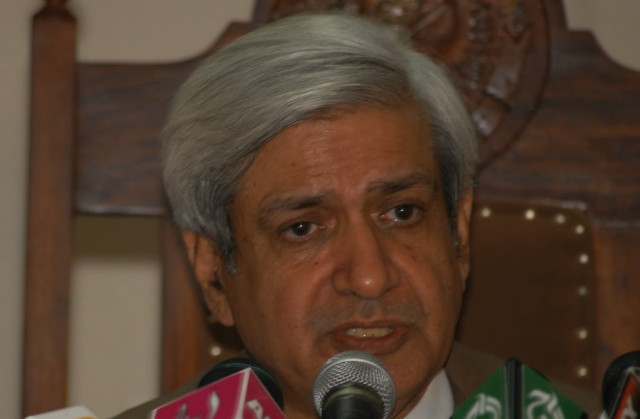Governor’s rule if Sindh does not mend its ways
Shibli blames province for creating wheat crisis

National Food Security Minister Syed Fakhar Imam blamed the Sindh government on Monday for creating a wheat and flour crisis in the country by not releasing its stock, while information minister Shibli Faraz warned the province to change its approach before the talk of governor’s rule.
Addressing a joint press conference with the Shibli Faraz, Syed Fakhar Imam said that the production in the country was more than the target, adding that if the Sindh government released the commodity, the price would go down significantly.
“Wheat and flour are an important part of our diet. I did not understand why the Sindh government wanted to create a wheat crisis,” he said. “The country produced more wheat than the target. Pakistan is the eighth largest wheat producer in the world.”
Faraz said that the reason for the increase in the price of flour was that the Sindh government was not releasing the wheat from its stocks. He warned that the Sindh government should change its approach before the talk of governor’s rule in the province.
Imam acknowledged that there was cartelisation and hoarding in Pakistan but stressed that it was the responsibility of the provinces to identify cartelisation. “Hoarding and smuggling are methods of creating scarcity,” he noted. “Provinces should eliminate the cartels.”
The minister said that the federal government and the provinces were working hard to ensure that there were no complaints about wheat and flour shortages. He added that the food security ministry would ensure that good quality wheat was available to the people at affordable price.
Imam said that 1.25 million tonnes of wheat was procured by Sindh. “I have written 2 letters to the Sindh government to release wheat,” he said. “Punjab has started releasing wheat. provinces should cooperate with each other and with the federal ministry to ensure smooth supply of wheat.”
The minister told reporters that wheat import was allowed to bridge the gap between supply and demand. “The ministry is providing facilities to the private sector importers to ensure proper and timely import of wheat,” he added.
On the occasion, National Food Security Secretary Omar Hamid Khan said that the imported wheat would reach Pakistan by August 25. He said 1 million tonnes of wheat was being imported under GTG. While the Trading Corporation of Pakistan (TCP) can also import 1.5 to 2 million tonnes. “The Imported wheat will cost Rs1780 for 40 kilograms,” he added.



















COMMENTS
Comments are moderated and generally will be posted if they are on-topic and not abusive.
For more information, please see our Comments FAQ